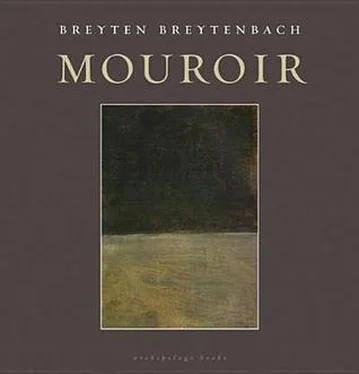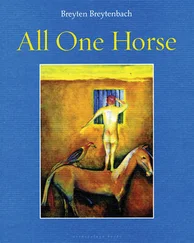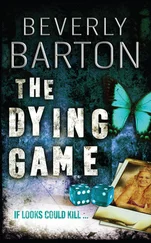On one such late winter’s evening D.E. recounted to us the following event. It was sharply cold — snow had fallen during the day on the Morainian Mountains and wind had carried the pale freshness of it into the city. We laid another log on the embers to see how sparks shy away from the heat, and all moved closer. (I do not believe in the existence of a soul — yet there comes a time when something inside you moves, moves. .)
And D.E. started:
So often one hears a reference to chance or to fate. I wonder. I often ask myself what reality is and if it isn’t everything , you know, because we are inclined to consider reality with a capital R as a pole, part of a two-step wherein the Other is constituted by irreality. If everything — everything conceivable and inconceivable that ever happened and that can never take place — if it is all reality then it is equally true that it is unreal, or of both “conditions” simultaneously. It follows, not so? Then we can surely say — I’m not trying to put my speculations in a logical order — that all barriers have been lifted. We speak of chance and fate because we cling with constricted buttocks to the conception of time. We have made of time a measuring rod — and that because we experience time as consciousness instead of as a dimension or a thing for instance, or an atavistic instinct we have not yet been able to eliminate through breeding — as the small awareness of course, spinning like a moth around the stone of the self; it is a bodily consciousness and as flesh multiplies and ages and very quickly decays, consciousness clinging to that same body inevitably sees time as a passing instant — that is how psychocentric man is — sees it as a passage and a passing, a progression, and we refer to “earlier” and “later”. But isn’t the small consciousness just a dust mote in the air momentarily irradiated by light or a dance of little flames, “thinking” then that it itself contains and brings forth light? And when light falls elsewhere — does the dust stop existing? Just imagine it falling on a house knocked together of grey planks in another mourner’s story? Or on the trembling calves of someone being strung up — where? Woe, woe the old worderer. . I believe we shall remain entangled in the riddle’s knots until the temple’s veil be torn asunder, until we are piloted beyond death-birth — called “life” — and further than samsara . I mean — until the tatters of illusion give way before us — the Hindus refer to it as maya . Just ask Ganesh, he has Indian friends. It is after all an ancient Vedantaic conception that everything is created out of ignorance, avidya , both the goods of the spirit and the body, and indeed by the double process of veiling or avarana of the reality, and thence constructing precisely on the basis of that veiling by means of projection, vikshepa . . This eternal illusion of which we are part and which we always weave further with our consciousness. Until the scales are peeled from our eyes and without beginning or end or limitations we enter the void, sunyata . And nothing contains everything. As the old gentleman sighed: “Life is a chasing after fuck all.”
Do we live or are we lived? And if we are lived, can we then die? Aren’t we just forgotten? But is anything ever forgotten completely? Perhaps it does escape memory as it was at that time , the way light caught it then; but somewhere it slid over into something else, did it induce another it, is it at the same time result and cause . And thus the it did not go lost. Everything continues vibrating and existing simultaneously. If I tell you then that the event which I’m going to depict is taking place now in the tilting of these words! Or that it happened long ago but that you were all present then — you, Greg, with your light hair and your gaiters there by the mirror; you, Mooityd, with your big smooth eye and your flowered dress; you K, with the smell of spoilt horsemeat on your trouser legs; you, Lasouris, with your dressings and your ointments and your armpits; and you, Breytenbach, with your fancy ways; and you, Signora Cenami, with the hot nether parts; and you, Minnaar, old grey one. But that you will only realize it now? And if one of you should write down my words — or rather that which my words became in your memory and consciousness, the moth wriggles free and leaves a little hole in the cloth — and carry them forward and transplant them into others which will consume the words and so forth — wouldn’t you all have been present in that case? Was I then not, rather, am I then not among you? It is the ear-blinding of the worderer. The diffusion. And time — let’s forget for the time being about convention and conscience — where do we fix it? Isn’t it always actual? Those moments when all is said and done are present when I recount them, translate them, just as dot-dot to date as when they will be repeated years hence by one of you and so on et cetera.
Actually I want to describe two incidents for you and at first sight it may well seem that there is no relationship between the two. Yet, when you let your eye penetrate deeply enough, you will see the link somewhere. As you all know, I spent a long stretch in prison. You learn more about measuring there than may be good for your spiritual equilibrium. However it may be, much of that time passed me by. Our word agreements, as you will notice, constitute the structure for our way of seeing itself, so that I must speak of a time — like a thing or a dimension for instance — which moves, which is deployed; of an “earlier” and an “afterwards” and a “then”. Never mind. I remember that the gaol building was a low, oblong hut. The hut was against the incline of a hillside. At the front, from the side facing downhill, it was two storeys high; at the back of the building the terrain was very steep — higher than the shutters of the second floor where I was kept. It was a small prison, nothing to get excited about. On the ground floor — which received light only from the front — a corridor with rows of cells on either side, but the cells were empty. When Sergeant Roog wanted to talk seriously, to see me eye to eye, he took me to one of the empty cages and then talked long and hissingly right into my face so that I could smell his moustache reeking of onion and egg. Why he found it necessary to take me there I’ll never know, since the upper floor, which consisted of one long room, was also uninhabited except for Warder Softly-Softly and the already mentioned Roog (they had to stay with me at all times, day and night) and my wife, Meisie, who was allowed to share my time. We were in a small town on the ocean. The sun shone regularly and the skies above us were open unto infinity but a wind blew daily in large folds. And a haziness at the turning-points of the day, moving, moving. Here the wind blew so boisterously that you could hardly conceive of it blowing anywhere else also: this town with its surroundings must have been its habitat. Or its stoke-hole. From the second-floor windows one could see through gaps between the buildings the stormy sea tossing and turning — with white bonnets being whipped along by the waves as if a whole procession of pioneer women had come to grief there, the waterlogged blue corpses floating under the fluttering dresses.
Our life there wasn’t disagreeable. When I say this you can see that I was already. . free. Sometimes I even thought that the prison must be a holiday camp for warders and that we were there — I at least, for my wife had never been sentenced — just to justify the presence of the guardians: even when on leave there must be detainees to give continuity and steadiness and direction to their existence. And yet they never went walking or swimming or even just shopping or playing the pin-tables; they were loath to leave us alone, and they were at all times strictly according to regulations spit-smoothed and polished in their uniforms. They weren’t repressive. Warders will be warders. True, in terms of his arrested development and in order not to lose the grip on his sense of reality, Roog at regular intervals had to bluster and mete out punishment. Softly-Softly was more jovial, devil-may-care. Often we got drunk together, perhaps also to push back the moving fog of ennui.
Читать дальше












